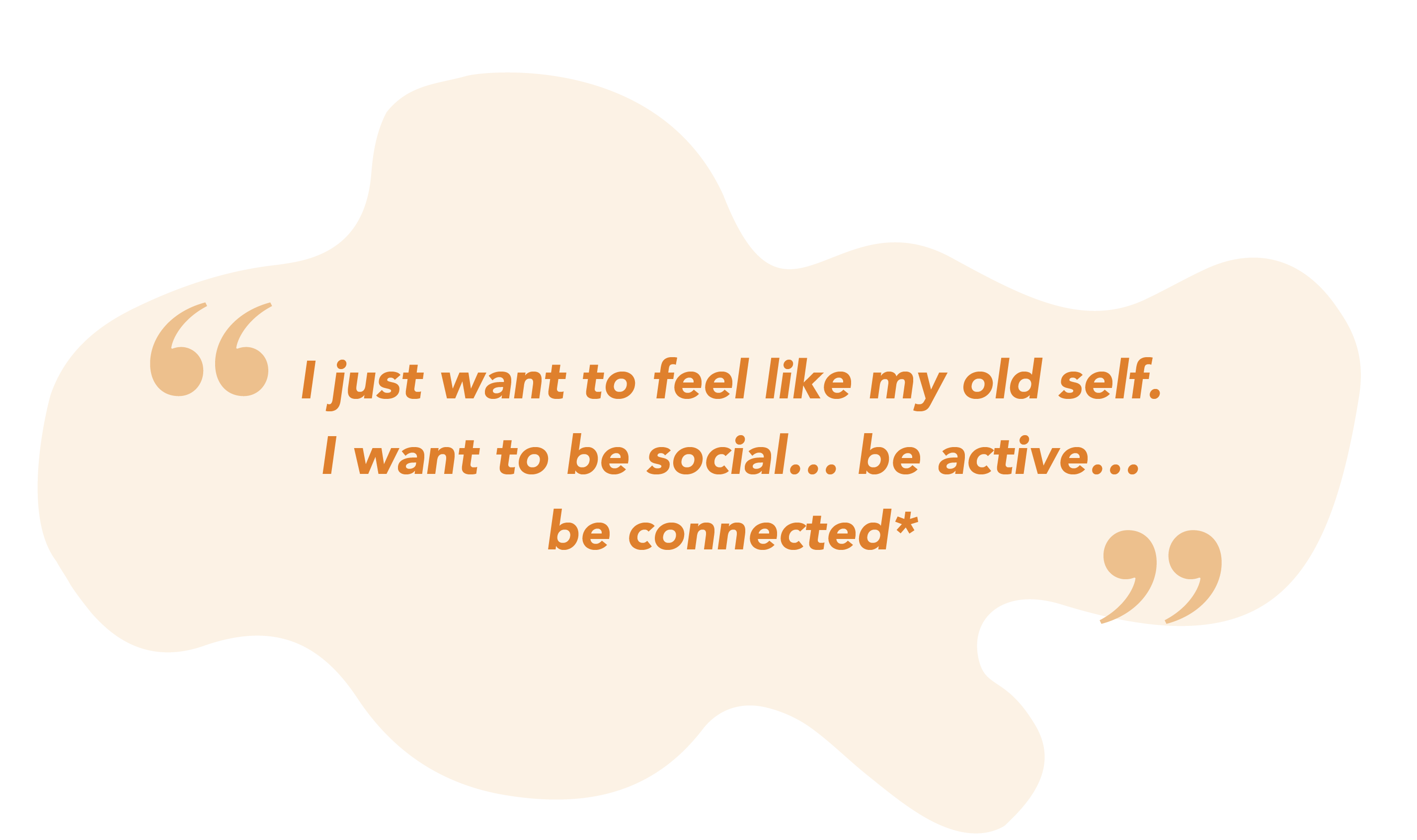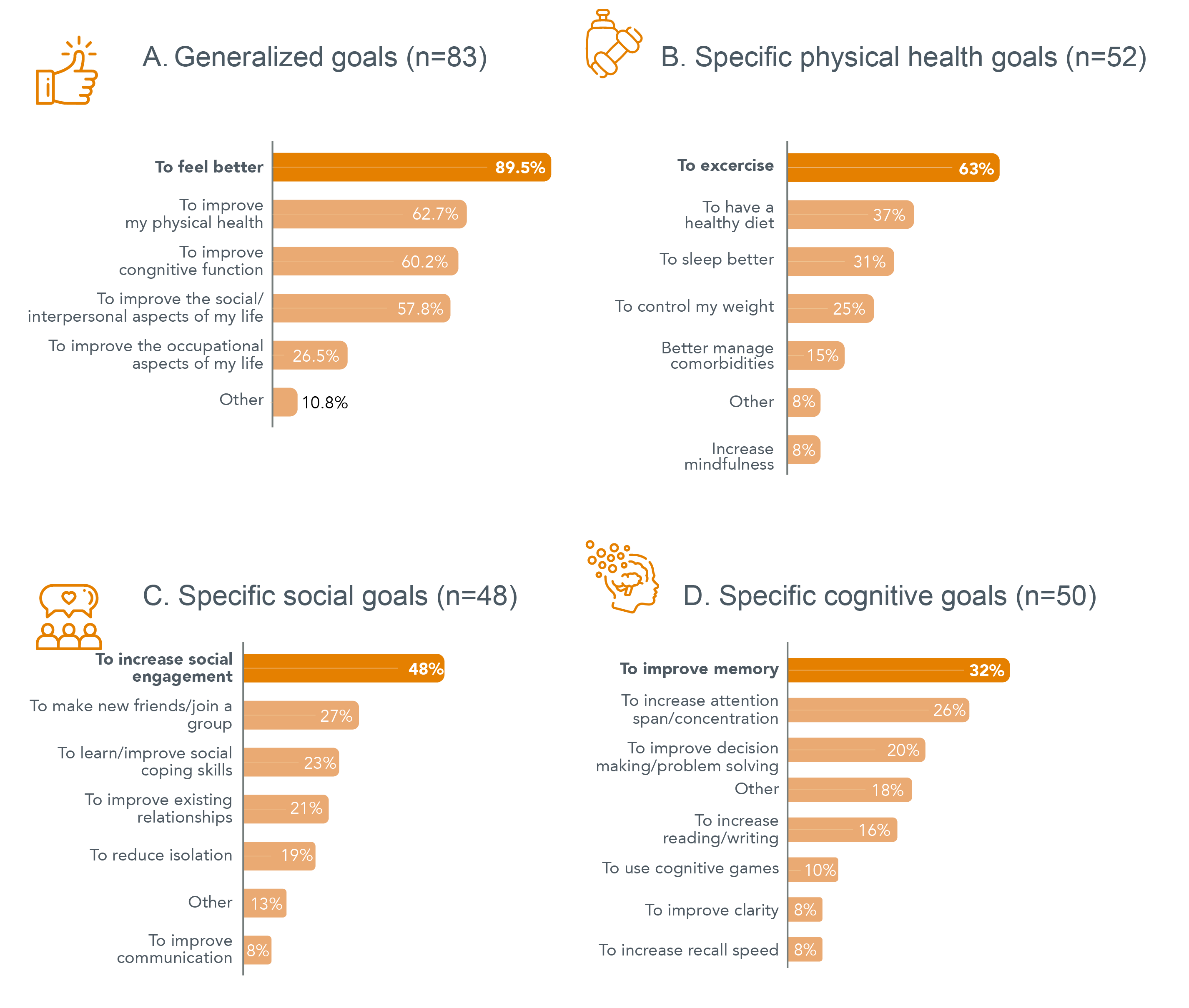Patients with major depressive disorder (MDD) report a broad range of treatment goals beyond just symptom relief[1]
They report generalised goals, such as ‘feeling better’, as well as specific physical, social and cognitive goals.1
This patient survey study by McNaughton EC et al. explored patient perspectives on setting individualised treatment goals, shared decision making, and tracking progress toward treatment goals in real-world clinical practice through a goal attainment approach.†1 Engaging patients with MDD in a goal-setting process can be an effective approach to align patient and HCP expectations regarding treatment in a way that is meaningful to patients. To facilitate this alignment, it is helpful to identify and define goals together with patients and their physicians. Of the 200 participants who completed the survey, 42% reported currently having goals for MDD treatment, ranging from the areas of physical health to social aspects of life.1 A majority of respondents (61%) believed the goal attainment approach would be helpful to set and evaluate treatment goals in their recovery. The results of this study can help inform best practices in patient-clinician communication when developing an MDD treatment plan and defining treatment goals.1 Explore the range of patient-reported treatment goals in MDD below.

Patient-reported treatment goals in MDD1
Evaluation of goal setting in patients with MDD.
Patient-reported treatment goals in MDD1
Evaluation of goal setting in patients with MDD.

Adapted from: McNaughton EC et al. 2019
Patients reported generalised goals (A), and identified specific goals according to physical, social, and cognitive well-being (B-D). Treatment goal categories were not mutually exclusive; patients could report more than one treatment goal and goals in more than one category.
Adapted from: McNaughton EC et al. 2019
Patients reported generalised goals (A), and identified specific goals according to physical, social, and cognitive well-being (B-D). Treatment goal categories were not mutually exclusive; patients could report more than one treatment goal and goals in more than one category.

* Fictitious patient.
† Data based on a 50-question online survey in 200 patients diagnosed with MDD and a switch in antidepressant medications within the past 2 years.1
Abbreviations:
MDD, major depressive disorder.
* Fictitious patient.
† Data based on a 50-question online survey in 200 patients diagnosed with MDD and a switch in antidepressant medications within the past 2 years.1
Abbreviations:
MDD, major depressive disorder.

